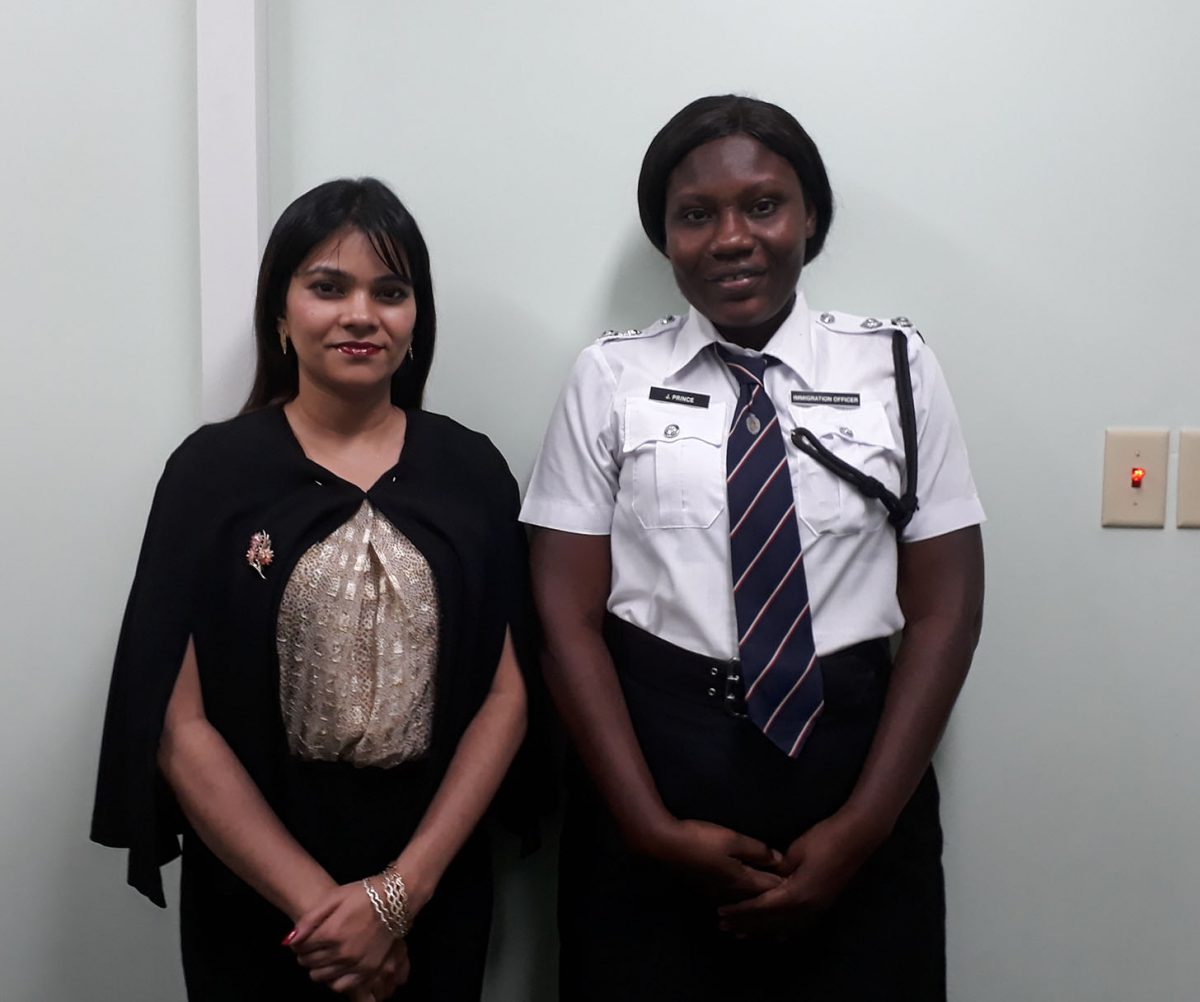Guyana has agreed to the creation of a Regional Information Card for the thousands of Venezuelans who have fled hardships in their country.
A release yesterday from the Ministry of the Presidency said that Guyana recently participated in a two-day Technical Meeting on the Quito Process held in Buenos Aires, Argentina and its representatives agreed to the creation of the card for Venezuelan migrants.
Legal Officer, Frontiers Division, Ministry of Foreign Affairs, Dianna Khan and Officer-in-Charge of Ports of Entry, Immigration Department of the Guyana Police Force, Assistant Superintendent, Jeanette Prince participated in the meeting, which was held on September 17 and 18, 2019.
The two Guyanese were among Ministries of Foreign Affairs and Immigration officials representing several Latin American countries. Also present at the meeting were officials from the International Organization for Migration and the Office of the United Nations High Commissioner for Refugees.
The objective of the Quito Process is a coordinated regional response to the displacement of millions of Venezuelans in recent years.
The release said that Prince, on Monday, during a Multi-agency Coordinating Committee Meeting on the influx of Venezuelan Migrants into Guyana, held at the Department of Citizenship, said that the information listed on the card will assist in the effective integration of the migrants into the country they enter.
Following the circulation of a sample of what the card is expected to look like, Prince said that the name of the card will be changed from Regional Mobility Card to Regional Information Card.
“Based on the fruitful discussions coming out of the working group, we realised that the card is not meant to be a travel card, it is not meant to replace any visas as it relates to the country’s acceptance of the Venezuelan citizens, but it is an information card,” she stated.
Prince added that migrants will have to sign a consent form to allow for the placement of health records and information pertaining to their educational background on the card.
She said that the recording of health information is important because most of the time migrants receive the necessary vaccines in one country.
“If this information is on the card, it means that when they enter another country, we will be eliminating that case of duplication. It means that that person will not have to be vaccinated again in that country because we will know and we will have this card,” she said.
The card will be compatible for background checks of migrants against the European Union security system and Interpol.
Prince told the committee that a draft document concerning the card which was circulated at the end of the meeting, is likely to be tabled at an upcoming meeting to be held in Bogota, Colombia at the end of the year.
Khan added that the inclusion of a tax identification number on the card and a regional agreement to facilitate this were also discussed.

